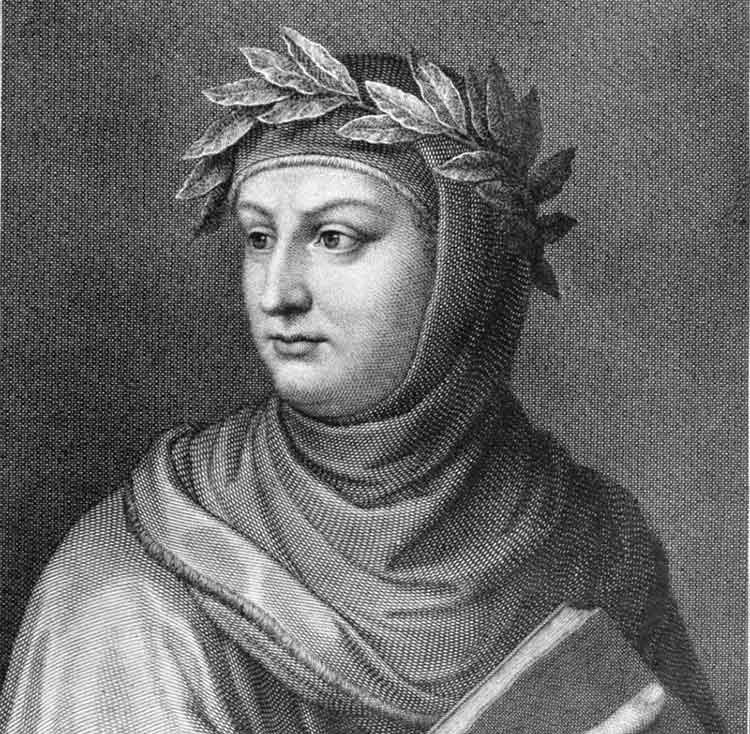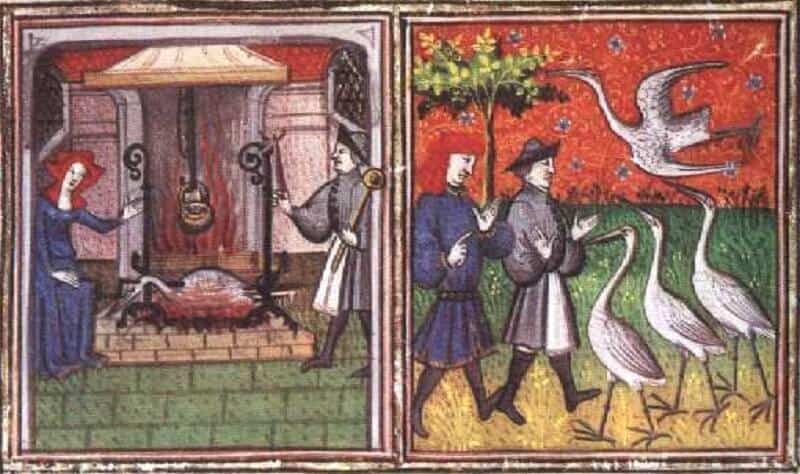
LIFE
Giovanni Boccaccio was an Italian writer, poet and correspondent of Petrarch. Born in the town of Certaldo
and is considered one of the most important figures in the European literary panorama of the fourteenth century. Some scholars define him as the greatest European prose writer of his time, a versatile writer who amalgamated different literary trends and genres, making them converge in original works, thanks to a creative activity exercised under the banner of experimentalism.
His most notable works are The Decameron, a collection of short stories which in the following centuries was a determining element for the Italian literary tradition, especially after Pietro Bembo elevated the Boccaccian style to a model of Italian prose in 1525. He wrote his imaginative literature mostly in Tuscan, as well as other works in Latin (since he had studied it as priest), and is particularly noted for his realistic dialogue which differed from that of his contemporaries, medieval writers who usually followed formulaic models for character and plot. The influence of Boccaccio's works was not limited to the Italian culture but extended to the rest of Europe.
Boccaccio, together with Dante Alighieri and Francesco Petrarca, is part of the so-called "Three Crowns" of Italian literature. He is remembered for being one of the precursors of humanism, of which he helped lay the foundations in the city of Florence, in conjunction with the activity of his friend and teacher Petrarch. He was the one who initiated Dante's criticism and philology: Boccaccio devoted himself to copying codices of the Divine Comedy and was a promoter of Dante's work.
DECAMERON
His main work is the: "Decameron", it is set in Italy during the time of the Black Death. A group of seven young women and three young men flee from plague-ridden Florence to the countryside for 10 days. To pass the evenings, each member of the group tells a story each night, at the end they have told 100 stories.
Each of the ten characters is charged as King or Queen of the company for one of the ten days in turn. This charge extends to choosing the theme of the stories for that day, and all but two days have topics assigned: examples of the power of fortune; examples of the power of human will; love tales that end tragically; love tales that end happily; clever replies that save the speaker; tricks that women play on men; tricks that people play on each other in general; examples of virtue.
Only Dioneo has the right to tell a tale on any topic he wishes, due to his wit, many commentators have argued that Dioneo expresses the views of Boccaccio himself.
Each day also includes a short introduction and conclusion to continue the frame of the tales by describing other daily activities besides story-telling. The interactions among tales in a day, or across days, as Boccaccio spins variations and reversals of previous material, forms a whole and not just a collection of stories. Recurring plots of the stories include mocking the lust and greed of the clergy; female lust and ambition on a par with male lust and ambition; tensions in Italian society between the new wealthy commercial class and noble families; and the perils and adventures of traveling merchants
MAIN NOVELS
Ser Ciappelletto
In the fourth episode, Ser Ciappelletto, a Neapolitan merchant, is sent to make a deal in France by his employer. For most of his life, he had devoted his soul to sin, seduction and profit, disregarding all moral and ethical values. He has committed blasphemy, forgery, murder and many other crimes. His employer wishes to send him to France where nobody knows of his past of crimes. There he will meet up with two fellow Neapolitans who are usurers.
He reaches France where he meets up with the two men. God punishes him with a serious illness that forces him to his death bed. The two men are outraged because if they turn him out they will be seen as bad hosts but if his crimes are revealed in confession they will certainly draw negative attention. Ciappelletto devises a plan to confess and calls a monk to tell him several lies and half-truths that make him seem very pure, while pretending to cringe over venial sins.
He tells the monk that he has never slept with a woman, which the monk sees as a very holy and righteous act as he is very handsome. He recalls to the monk that he once cursed his mother for spilling milk and has been tormented by that memory ever since. He also says he is ashamed of spitting in church once. The monk is amazed because he believes Ciappelleto is the most holy man he has ever seen.
Ciappelleto dies and due to these lies, the people consider him a holy man. After his death, Ciappelletto is revered as a saint. The monk delivers a eulogy to "Saint Ciappelletto" and urges everyone in attendance to take heed and remember his holy actions. He says they should all aim to live as he did. After the eulogy, many poor, disabled and sick people enter the room where Saint Ciappelletto is kept and touch his body in praise. The two Neapolitans look at each other in amazement that his plan worked.
Chichibio

One day Corrado Gianfigliazzi, a rich man comes home after a session of hunting with a dead flamingo. The body of the animal is sent to the kitchen where Chichibio, the chef, is told to prepare it for dinner.
While he is cooking, the girl he is in love with enters the cousine and asks him to give her a thigh of the animal and since he is in love, he gives her what she wants. At dinner, after seeing the animal with only one thigh, a furious Corrado asks explanations to the chef, who tells him that every flamingo has only one leg.
The day after, Corrado and Chichibio go together to check if flamingoes really have just one leg, when they arrive they see the animals resting standing on just one leg, so Corrado screams and ,scared, the flamingoes take out the other leg and fly away. So Chichibio says that if he just screamed also the evening before, the animal would have taken out the second leg, Corrado liked the joke so much that wasn't even angry at the cook anymore.